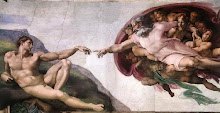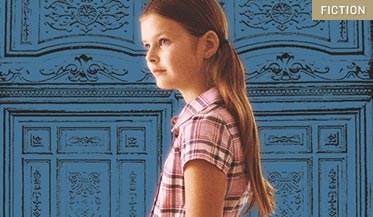I was recently struck by yet another author profile in Poets&Writers. Aciman is not only a writer who had a previous career in advertising but also an executive officer of a prominent comparative literature program, which makes his take on literary theory even more surprising.
Speaking of his graduate studies, Aciman says that he "was enthralled" by literary and cultural theory (Derrida, Foucault, Todorov, etc.) and "loved the idea of theory becoming so important." However, with experience, Aciman eventually changes his mind. Instead, Aciman sees theory as something of a threat to intellectual pursuits: "I think there's a lot of nonsense going on [in universities]...It's okay to be an academic. It's okay to be a scholar. But you also have to be an intellectual, and intellectuals have a different mission. They need a commitment to the excellence of the life of the mind, which I don't think has much to do with body politics. There are far more important issues that exist and need to be discussed. What is a human being? What is life? I think most literature is about that in one way or another and it transcends identity politics...What passes for intellectual engagement today is just an interest in current affairs."
I know that's a lot of quoting. And I don't even agree with Aciman entirely. But this section of the article strikes me because it seems as though Aciman is articulating my very own struggle with wedding creative and beautiful work with the stark outlines of literary theory. As Aciman says, "There's something about beauty that is difficult to talk about, so people talk about structure."
This is precisely the problem. How does one define beauty? How can we answer those questions about the nature of life and humanity? Art has been striving to do these things for literal ages. Aciman posits that to be a true intellectual, one most not focus only on societal structures but also see a deeper, more spiritual, and more elusive side of literature. Though I am still enthralled by my own theory love-affair, finding theory both interesting and useful, it is true that the cultural concepts and social aspects are not what "stick with me" when I am finished reading a book. The ending of The Amazing Adventures of Kavalier and Clay does not bring tears to my eyes (every time I read it) because it makes a statement on what it meant to be homosexual in mid-20th century America. The Elegance of the Hedgehog does not cause me to quiet myself into contemplating the simple beauty of life and question structured religion because loosely Buddhist characters cross socioeconomic boundaries. No, these books have something more that strikes the soul and not just the mind. It is this "something" that first drew me (and many others) to not just appreciate but literally fall in love with the art of stories.
In my mind, I think I secretly see this "something" as a sort of "literary divine." It can be felt and, to some extent, understood but not necessarily firmly grasped. This, in turn, leads me to another thought that I only wish to touch upon briefly as it is newly conceived in my process. I wonder if maybe Christians embrace theory (which is not always true if those theories contradict "Faith") even more readily than seeing a "self," or "divine," if you will, in literature--specifically secular literature (or art in general for that matter). We can better explain more concrete political and social theories about the world; sometimes we are even lucky enough to be able to fit them into our own "Christian narrative." But how dare we use art to tap into a deeper meaning that (though often unspoken) is only found in Christ and the Gospel.
Why are we so afraid of trying to answer questions like "What is it to be human?" and "What is life?" using literature?
 Perhaps I venture too far. It is true, Scripture provides relevant answers to these questions. But does this mean we should stop short at a 2000+ year old text without seeking more understanding that comes out of our very own culture?
Perhaps I venture too far. It is true, Scripture provides relevant answers to these questions. But does this mean we should stop short at a 2000+ year old text without seeking more understanding that comes out of our very own culture?I fear that I'm not being very clear as I try to disentangle this thread of thought to weave together my own theory of art and literature. I have the haunting suspicion that this is something I will always be working on and, for now at least, my musings are far from fluid. Somewhere there are loose ends of physical and spiritual beauty embodied in art tied with cultural and religious narratives knotted together into a big mess of theoretical misunderstanding. But we'll get there. And if we don't, the process must count for something.

No comments:
Post a Comment